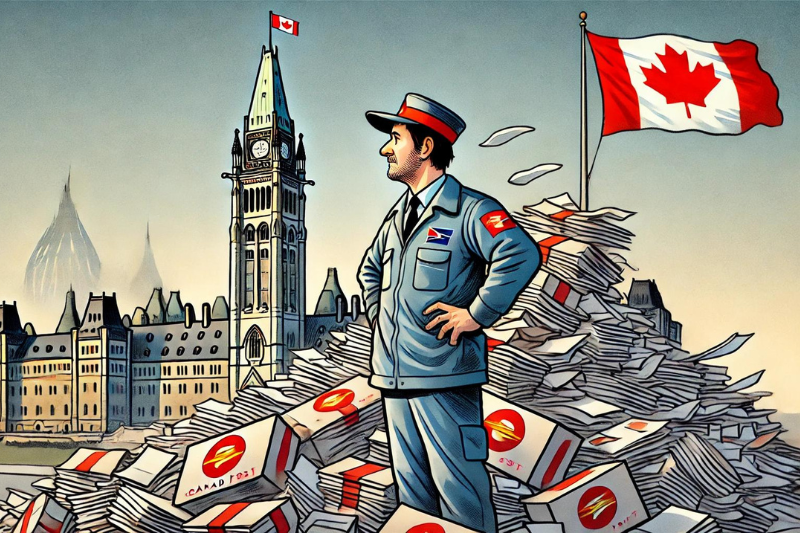Back in 2018, Ottawa passed back-to-work legislation to end rotating strikes by the Canadian Union of Postal Workers (CUPW).
Last week, an Ontario court rejected a Charter challenge of that legislation by the Canadian Union of Postal Workers (CUPW), ruling it moot because the parties have moved on and negotiated new agreements over the last six years.
But the court did take a shallow dive into the Charter issues involved to provide some guidance around a critical issue: When should (and can) governments step in to end a strike?
The right to strike: Essential but not absolute
Strikes are a fundamental right for workers. They use them to push for better working conditions and fair treatment. It’s part of the system and generally works well — a point driven home by the fact you can find both management and unions grumbling about the system.
When nobody is happy, it’s probably not a bad system.
The right to strike is protected under section 2(d) of the Canadian Charter of Rights and Freedoms — the freedom of association — allowing workers to band together and make their demands heard.
However, this right is not unlimited. Strikes can have significant consequences, not just for employers but for the public and the economy. It would be irresponsible to say that governments can’t interfere when the economic toll rises to an unacceptable or unsustainable level.
In 2018, Canada Post faced rotating strikes that caused substantial disruptions during the busiest mailing season of the year. The court noted that Canada Post suffered a $260 million loss in 2018, a stark contrast to the $17 million profit the previous year.
The government’s role: A necessary intervention
The government has a responsibility to balance the right to strike with the need to maintain essential services and economic stability. The 2018 postal strike serves as a great example. With the country’s postal service in turmoil with the busy holiday season fast approaching, the government decided it was time to act.
The PSRCA legislation ended the rotating strikes and imposed a new collective agreement between CUPW and Canada Post.
The Ontario Superior Court found that while this legislation did infringe on the right to strike, it was justified given the circumstances.
Judicial insight: Balancing rights and economic harm
Justice E.M. Morgan’s decision to dismiss the case as moot was grounded in the fact that the PSRCA had served its purpose and was no longer in effect. “The PSRCA is a matter of history… its force is spent,” he said.
However, the court’s analysis provided valuable insights into balancing workers’ rights and public interest.
The court acknowledged that the legislation interfered with the right to strike but emphasized that the state does not have to remain passive in the face of serious economic harm.
This perspective aligns with previous rulings that recognize the need to balance Charter protections with the broader impact on society.
Ensuring fairness in government intervention
One of the critical points in the court’s decision was that any government intervention in labour disputes should be fair and minimally intrusive.
The PSRCA included measures to ensure fairness, such as allowing consultation on the selection of arbitrators and adopting a neutral arbitration approach.
These steps were designed to minimize the infringement on workers’ rights and ultimately justified the legislation under section 1 of the Charter. That made it different than 2011 back-to-work legislation involving Canada Post that ultimately was found to have violated the Charter.
Cynicism and a sense of powerlessness
While CUPW argued that the legislation created cynicism and a sense of powerlessness among union members, the court pointed out that the broader positive outcomes outweighed these concerns.
“Counsel for CUPW argues that a lingering deleterious effect of the PSRCA is that its enactment fostered a feeling of powerlessness, and engendered a level of cynicism on the part of some union members,” it said. “While I do not doubt that such sentiments exist, the positive results of the process for CUPW, for Canada Post, and for the economy at large, certainly outweigh them.”
Striking a balance
This case serves as a reminder that while the right to strike is essential, it must be balanced with the need to maintain public services and economic stability.
Government intervention should be a last resort, used only when absolutely necessary and with measures in place to ensure fairness.
But it is a tool that must remain in the toolbox, ready to deploy when necessary, when the bigger picture mandates it.





